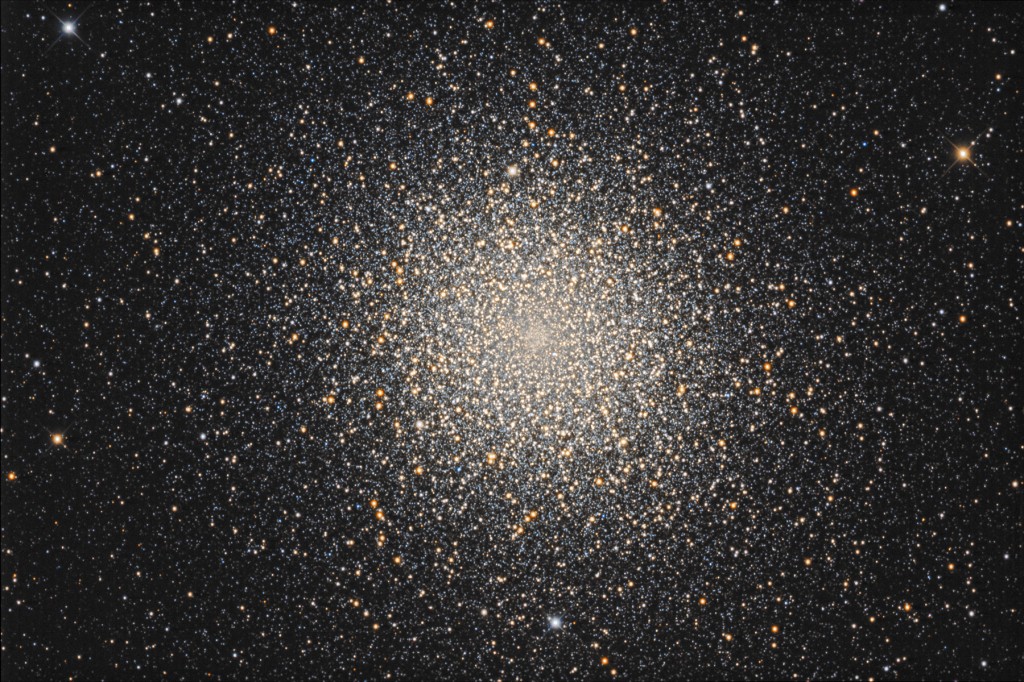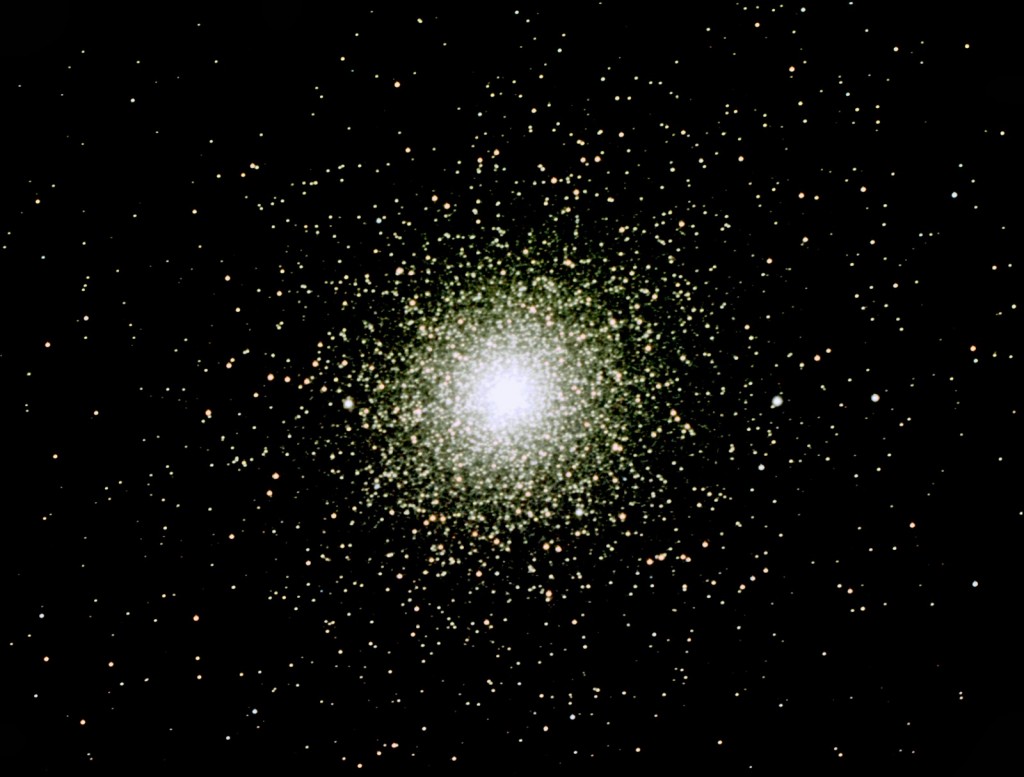
You can see more of Steve Crouch’s astrophotography over on his website.While delving around the SMC I couldn’t resist doing a shot of 47 Tucanae which I haven’t imaged for several years. This is 45 minutes exposure for each of L,R,G and B with the RGB added into L for synthetic luminance.
Catalogue and alternative designations NGC 104, 47 Tucanae
Type Globular Cluster
Position 00 24.1, -72 05
Constellation Tucana
Camera and Telescope STXL11002 and 36.8 cm Ritchey Chretien
Focal Ratio F9
Exposure Details LRGB 90:45:45:45 All 1×1. Synthetic luminance used.Description
47 Tucanae is the second brightest globular cluster in the sky but has a much stronger central condensation than Omega Centauri. It is adjacent to the Small Magellanic Cloud and a very easy naked eye object.

